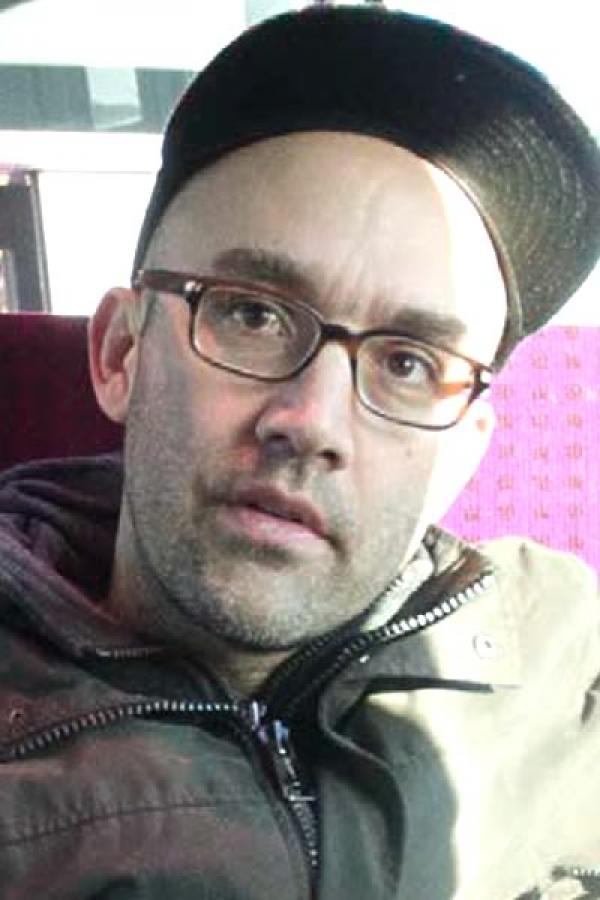Matt Reeck

Photo by Jane Yi
Bio
Matt Reeck has won fellowships from the Fulbright Foundation, the American Institute of Indian Studies, the National Endowment for the Arts, and the PEN-Heim Translation Fund. Bombay Stories (Random House India 2012, Vintage UK and US 2014)—his co-translation with Aftab Ahmad from the Urdu of Saadat Hasan Manto—was a New York Times editor’s choice in May 2014. Mirages of the Mind (Vintage India 2015, New Directions 2016)—his co-translation with Aftab Ahmad from the Urdu of Mushtaq Ahmed Yousufi—was noted by Three Percent as one of the twenty-five best translations of 2016. Class Warrior—Taoist Style, his translation from the French of Abdelkébir Khatibi, is available Fall 2017 from Wesleyan University Press.
Translation started for me as a labor of love; it remains so—I love doing it. But the question becomes how to transform it from a labor of love to a labor of remuneration, as well. Recognition by the NEA provides, then, not only the encouragement that my translations are needed culturally, but it also provides the financial support needed for a type of work—translation—that does not play a central part in any profession. This award is especially valuable for my work as a translator from the Urdu: whereas the French government, for example, supports French translation abroad in numerous way, the governments of Pakistan and India—the two largest countries where Urdu lives and breathes—do not support Urdu translation abroad. The NEA means that I can feasibly pursue Urdu translation; and that makes me very happy.
from Chapter 1, The Chronicle by Intizar Husain
[translated from the Urdu]
This bundle of papers was Mian Jan’s manuscript, I mean, it belonged to my deceased paternal grandfather, whom everyone in our family, from the young to the old, called Mian Jan, and whom outside of the house everyone called Khan Bahadur Sahib, except for his spiritual brother Pandit Ganga Dutt, the Forsaken One, who sometimes called him Shri Musthaq Ali and sometimes Mushtaq Ali-ji. In any event, the fact that his manuscript fell into my hands amounted to a real challenge. For one, its pages were out of order and quite decayed. Second of all, Mian Jan’s Urdu handwriting was such that it was difficult for me to make out, though, after a bit, I began to find some pleasure in deciphering it. I began to feel that I should see what the pages contained so as to figure out what it was about my family that in every generation someone took it upon himself to sit down with an inkpot and start writing. With such concentration they had written down the histories of the family as though they were leaving for their children a valuable piece of property. My great-grandfather died leaving the world of material things behind, and in his will the length of the instructions concerning this bundle of papers far exceeded the few instructions left regarding his property.
I thought that, in the end, I was of the same blood as my ancestors, so why wouldn’t I want to continue writing the chronicle? Why hadn’t I seen any such desire in my father? All he had done was make sure that the chronicle had not been destroyed. He had never advised or instructed me in any way in this regard. He had never spoken about the chronicle in front of me. What you could say is that in the preparations to move, while inspecting our possessions, I thought that I should look through my deceased father’s papers so that I would be able to separate the important ones from those that could be tossed, and while organizing, I found this manuscript, whose pages were out of order, in very bad condition, and showed the effects of being left untouched for such a long time, such as holes caused by feeding insects.
I understand why my father didn’t continue the chronicle. My father died soon after my grandfather. As long as my grandfather was alive, why would he have felt the necessity of carrying on the tradition? But why hadn’t I found the desire to do so? I knew my grandparents when they were alive, and I saw them die. I saw Mian Jan’s funeral procession. Then I saw my father die. He died as soon as he got here. It was as if having taken upon himself the trouble of immigrating in tumultuous times, and having heard the call of this new land, then, having come here, having left there, he abruptly left us. Back there, Chacha Uncle, who had settled in Aligarh, died within several months. Now, with the older generation gone, an entire era was over. Now I’m old, or, their deaths made me the older generation. But, even in these circumstances, I hadn’t got the urge to continue writing the chronicle, even though in the course of immigrating, things had happened to our family that were worthy of being chronicled.
About Intizar Husain
A professional journalist, Intizar Husain (1923-2016) wrote more than 40 books, including novels, short stories, novellas, poetry, and one travelogue, all of which earned him numerous awards, including Pakistan's Star of Excellence. Newsweek Pakistan recognized him as the most important living writer in Pakistan. The Chronicle is the second novel in a trilogy that stems from Husain's experience of migrating to Pakistan after the partition of India in 1947 and explores such themes as South Asia's past, the politics of the partition, and the contemporary state of Pakistan. This 295-page novel spans more than 100 years of South Asian life, from the Rebellion of 1857 to the presidency of Zia-ul-Haq (who was the 6th President of Pakistan, 1978-88).

